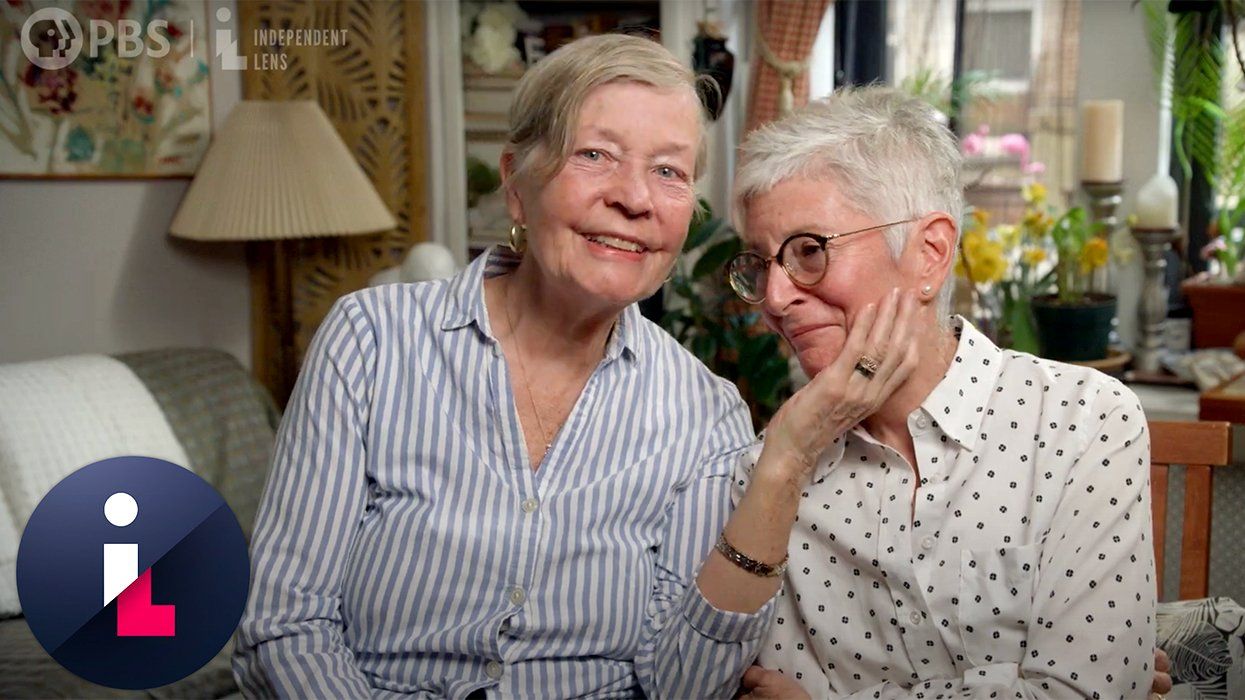Thousands of American children need foster or adoptive homes, and many LGBTQ+ people would love to provide them. But there’s a problem — some of these LGBTQ+ people are reluctant to step up due to fear of discrimination.
That’s among the findings of the Americans’ Views of U.S. Foster Care study, conducted by Gallup, the well-known polling organization, and Kidsave’s EMBRACE Project. Kidsave is a nonprofit dedicated to helping older kids in foster care, and EMBRACE — which stands for Expanding Meaningful Black Relationships and Creating Equity — is aimed at improving the outcomes for Black foster youth. The findings regarding LGBTQ+ participation were released Wednesday morning.
LGBTQ+ Americans are more interested in becoming foster or adoptive parents than their straight and/or cisgender peers, Gallup reports. Thirty-seven percent of LGBTQ+ adults have seriously considered fostering a child, and 32 percent have seriously considered adoption, compared with 23 percent and 15 percent of non-LGBTQ+ adults, respectively, according to the study. Women from the LGBTQ+ community express interest at a higher rate than men.
But more than a third of the LGBTQ+ adults surveyed said fear of discrimination based on sexual orientation or gender identity is a barrier to becoming foster parents or adopting from foster care. Men are more likely to fear discrimination than are women.
Fear of discrimination in the foster care system is common across populations — polls have found, for instance, that Black and Hispanic Americans fear racial discrimination in the system. And sometimes the fear is based not just on perception but on reality. Some cities and states contract with foster and adoption agencies that refuse to place children with LGBTQ+ parents. Such refusals usually happen because the agency is affiliated with an anti-LGBTQ+ religious body.
This happens even in liberal cities and states. In 2021, the U.S. Supreme Court ruled that Catholic Social Services can still handle foster placements for the city of Philadelphia even if it won't certify same-sex couples as foster parents — in violation of the city’s antidiscrimination ordinance. Philadelphia contracts with other agencies that accept same-sex couples, and the ruling in favor of Catholic Social Services was based on an exception in its contract and didn’t create a broad right to discriminate — but it’s clear that anti-LGBTQ+ bias is out there.
There are several ways to combat fear of discrimination — and discrimination itself, says Shantay Armstrong, strategic communications manager, DEI, for Kidsave. One would be a national antidiscrimination law that includes sexual orientation and gender identity, she says. There have been attempts to pass such a law — the Equality Act — and President Joe Biden has committed to signing it, but it’s never gotten through both houses of Congress.
Armstrong also calls for highlighting situations where there isn’t discrimination and LGBTQ+ people have become foster or adoptive parents and given children good homes. “We can show these are not only safe households but where children are succeeding,” she says. Social media campaigns can be helpful in this regard, she notes.
Prospective foster or adoptive parents go through a rigorous process, she points out, that involves many hours of training, fingerprinting, and more. So there are plenty of safeguards in place, whether the parents are LGBTQ+ or not.
There is clearly a need for more foster and adoptive parents. As of 2021, there were nearly 400,000 children in the U.S. foster care system, and 100,000 of them were in need of permanent homes, according to the Department of Health and Human Services. Those without permanent homes are sometimes in group homes or institutions.
Meanwhile, “fear of facing discrimination is holding back potentially millions of LGBT families and individuals who are serious about caring for children in need of a home,” says the Gallup report. “Family service organizations raising awareness about perceptions of discrimination and addressing those concerns could potentially boost the number of LGBT people open to taking the first step toward fostering children or adopting from the foster care system.”
Providing insight on LGBTQ+ issues is definitely part of Gallup’s mission and has been for decades, says Sarah Fioroni, a Gallup senior researcher. “Gallup has polled on issues facing the LGBTQ+ community since 1977,” she tells The Advocate via email. “It’s a long-standing research topic that aligns with our commitment to elevating voices that shed light on critical social, business, and political issues across the globe.
“Our research, which you can access on our LGBTQ+ Rights historic trends page, finds that LGBTQ+ Americans face unique adversity in many areas of life. Though the public has become increasingly supportive of allowing gay and lesbian people to adopt children, there are still many Americans, making up roughly a fourth of the population, who oppose adoption rights for gay parents.
“These public sentiments clearly weigh on LGBTQ+ prospective parents, as revealed in our research with Kidsave — many LGBTQ+ Americans are hesitant to foster or adopt children from foster care due to fear of discrimination based on sexual identity or gender. This fits within the larger goal of the study to better understand what barriers are preventing interested families or individuals from getting involved.”















Charlie Kirk DID say stoning gay people was the 'perfect law' — and these other heinous quotes
These are some of his worst comments about LGBTQ+ people made by Charlie Kirk.